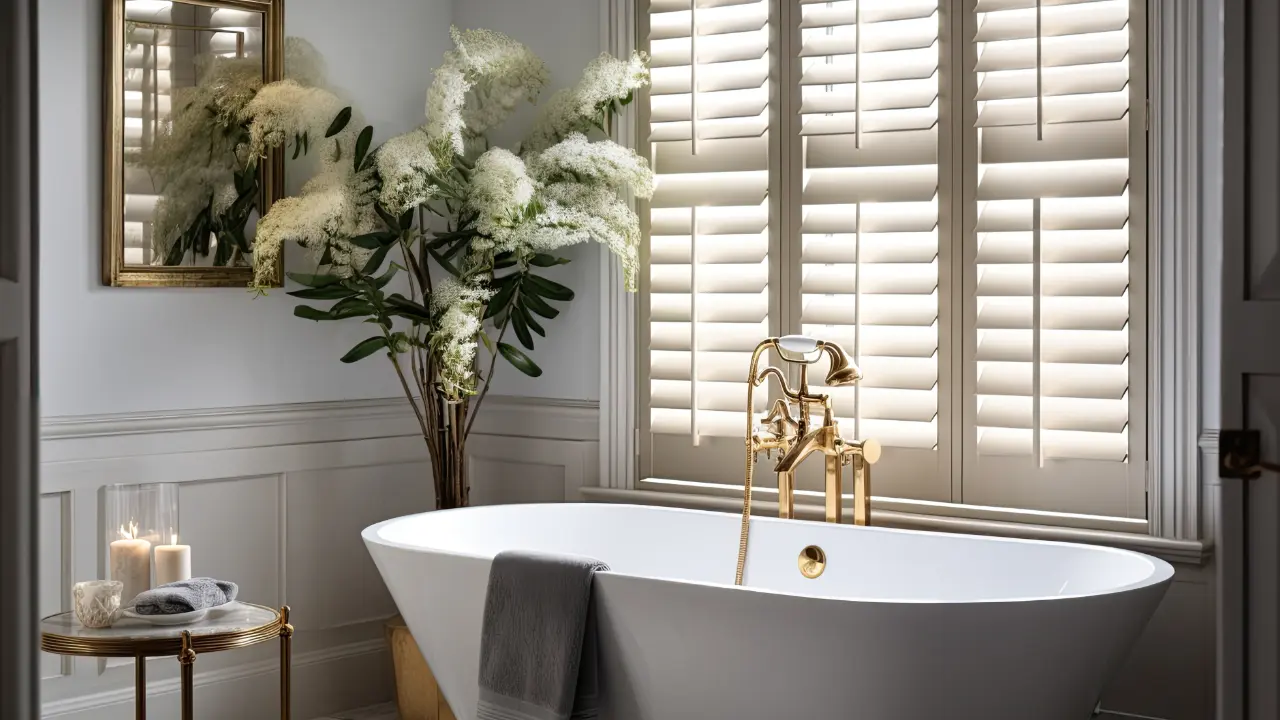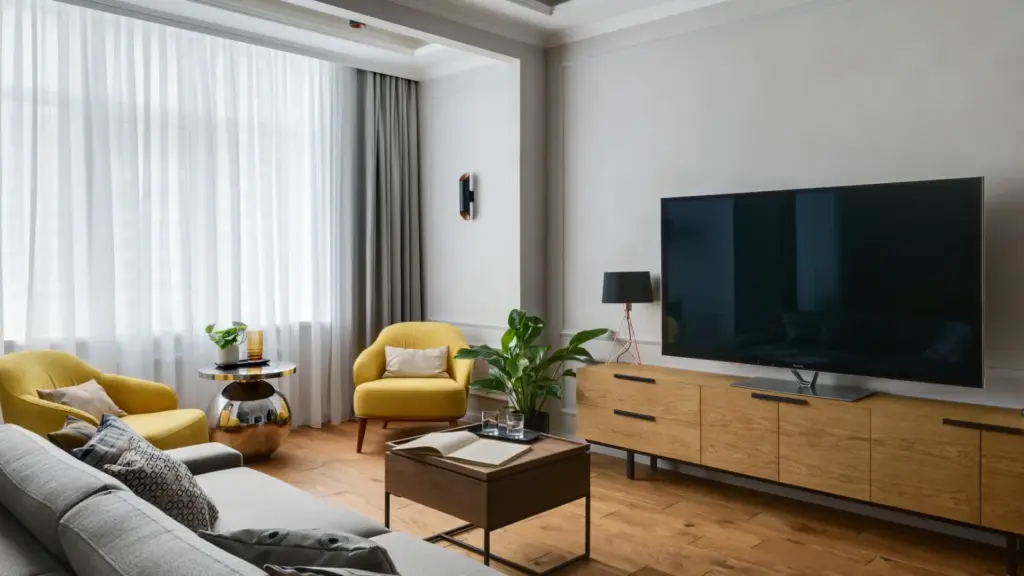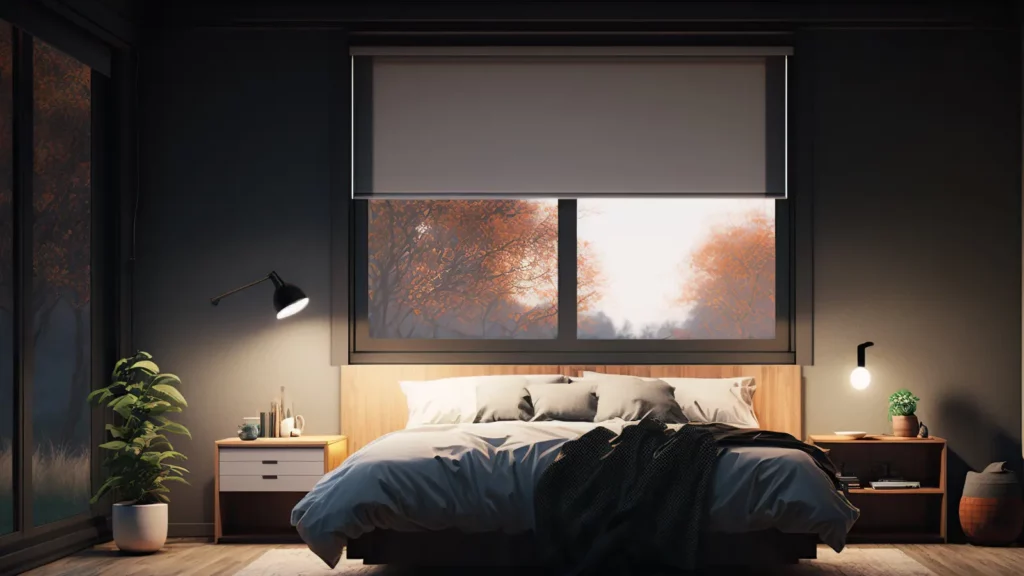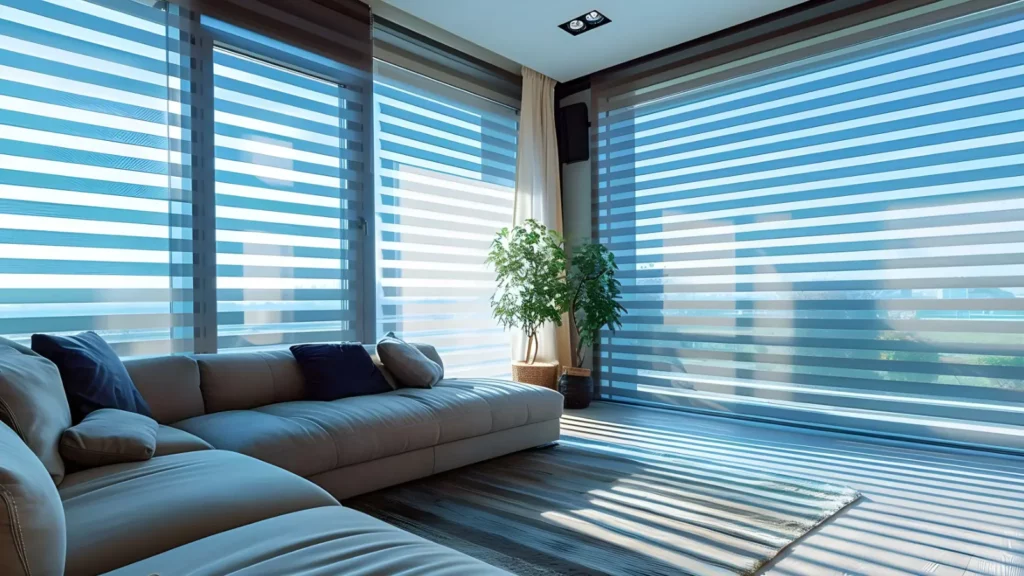Wood Vs. Composite Shutters: Choosing the Ideal Window Treatment

Window shutters usually cost more than other treatments, but are well worth the scratch.
Besides imparting a classic and timeless appeal to a setting, they offer several advantages:
- Superior light and privacy control
- Insulation against heat, cold, and noise
- Durability: high-quality shutters can last a lifetime
No one disputes the natural beauty of natural wood, but composite shutters come close in the aesthetics department. In certain situations, they may be a better choice.
Here, we’ll dig into the pros and cons of wood and composite shutters to help you make the right decision for your home and budget.
Wood Shutters
Wood shutters have existed for centuries and are still popular among homeowners today. They’re crafted from genuine wood varieties such as cedar, pine, or basswood and bring warmth, elegance, and sophistication to any room where they’re installed.
They’re available in a profusion of finishes, making it easy to integrate them into modern or traditional design schemes across living rooms, dining spaces, and bedrooms.
Advantages of Wood Shutters
- Customization: Buying “off-the-shelf” shutters with a perfect fit is virtually impossible. That’s where customization comes in. Wood shutters are easily customized for any window shape, size, or style. You can stain or paint them to match any decor.
- Energy Efficiency: The natural heat-holding ability of wood offers slightly better insulation than composite shutters.
- Natural Beauty: Natural wood shutters fit the bill if you’re a “green” homeowner who loves sustainable products. They offer that unique, organic character and warmth that synthetic materials struggle to emulate.
- Durability & Low Maintenance: Wood is sturdy and holds up over time. Well-maintained shutters can last much longer than other treatments, and as for maintenance, aside from occasional dusting, you may need to wipe them down every few months. That’s it.
- Motorization: Motorization options elevate convenience, giving you an automated approach to light control and privacy settings.
Drawbacks of Wood Shutters
- Cost: Typically, hardwood shutters cost 35% to 50% more than their composite counterparts, making them an investment for the long haul.
- Vulnerability to Moisture: Untreated or inadequately sealed wood shutters are susceptible to moisture absorption despite their resilience. This might lead to warping or cracking over time. You’ll need to watch them closely in bathrooms, kitchens, and other humid areas.
Composite Shutters
A mixture of medium-density fiberboard (MDF) wrapped in PVC/vinyl coating makes composite shutters a budget-friendly alternative to natural wood. They mimic the look of natural wood but can’t capture the exact texture and warmth. For many homeowners, this is close enough, and composite shutters outperform wood by a wide margin in humid rooms.
Advantages of Composite Shutters
- Moisture Resistance: The amalgamation of MDF and vinyl coating makes composite shutters resistant to moisture, humidity, and extreme temperatures. They won’t warp or crack in a humid bathroom setting as wood shutters might.
- Affordability: Composite shutters are significantly cheaper than natural wood. While still costlier than many other window treatments, they’re more budget-friendly than wood shutters.
- Easy Maintenance: You don’t need to worry about excessive moisture, sun exposure, or staining with composite shutters. A quick wipe-down with a damp cloth keeps them looking new and fresh.
Drawbacks of Composite Shutters
- Limited Customization: Unlike wood shutters, you can’t stain composite shutters as the colors are already added to the PVC coating. This limits your customization options, and they may not match your decor as perfectly as you’d like.
- Durability: While composite shutters are durable, they don’t have the same lifespan as natural wood. They’re more likely to require replacement sooner than their hardwood counterparts.
- Aesthetics: Composite shutters may not offer the same natural beauty as wood shutters. They can look synthetic, and some homeowners prefer the real thing.
- Limited Style & Weight: Composite shutters come in a more restricted range of colors, finishes, and styles. Also, they tend to be heavier than their wooden counterparts, necessitating special care during installation.
Choosing Your Ideal Shutters: Considerations
As you navigate through the pros and cons of wood and composite shutters, consider the following factors:
- Budget: The expense of wood shutters may make them prohibitive for some homeowners. In this scenario, composite shutters may be an alternative.
- Location: For high-moisture areas like bathrooms, kitchens, or laundry rooms, composite shutters are the better choice due to their resistance to moisture and humidity.
- Style & Personal Preference: Do you love the look and feel of natural wood? If so, nothing beats the real thing. However, composite shutters may be a better fit if you’re going for a more modern or contemporary look.
- Longevity: Wood shutters offer superior longevity and require minimal maintenance. Consider how long you want your shutters to last and how much time you want to maintain them.
- Energy Efficiency: As mentioned earlier, wood shutters have slightly better insulation properties than composite shutters.
Where to Buy Window Shutters in Los Angeles
You can try your luck online, but measurements can be tricky and mistakes costly. Or you can call us at 323-457-2835.
We’re Aero Shade, one of LA’s oldest and most trusted window treatment stores, and we customize shutters, shades, and most other coverings.
Visit our Los Angeles showroom to see and test working models of our products, or contact us for a free, in-home, no-obligation estimate.
We guarantee a perfect fit every time!
FAQs: More about Window Shutters
Q: How long do shutters typically last?
Wood shutters can last 50+ years with proper maintenance, while composite shutters typically have a lifespan of around 20 years.
Q: Can shutters help with energy efficiency?
Shutters can reduce heat transfer through windows, potentially saving you on heating and cooling costs.
Q: Which shutters offer better insulation, wood or composite?
Both offer insulation, but wood shutters have slightly better heat-holding properties.
Q: Do wood shutters require more maintenance than composite shutters?
Yes, wood shutters may need more maintenance, especially in terms of sealing against moisture.
Q: Can composite shutters be customized like wood shutters?
Composite shutters offer customization options, although they may be limited compared to wood shutters.
Q: Are composite shutters eco-friendly compared to wood shutters?
Composite shutters often use recycled materials and are considered more environmentally friendly.
Q: Do wood shutters add value to a home?
A: High-quality wood shutters can increase a home’s aesthetic appeal and add value.
Q: Do composite shutters fade over time?
With proper care and maintenance, composite shutters shouldn’t fade. However, prolonged exposure to direct sunlight may cause some fading.
Q: Do wood shutters have an odor?
Wood shutters may initially have a natural wood scent but don’t emit strong odors once installed.
Q: Can composite shutters be repaired if damaged?
Some minor damage to composite shutters can be repaired, but extensive damage may require replacement.
Q: Are there any fire safety differences between wood and composite shutters?
Wood shutters are typically more fire-resistant. Composite shutters may contain flammable materials, so it’s essential to check with the vendor, especially if you live in an area vulnerable to brush fires.
Q: Can I install shutters myself?
We highly recommend having a professional install your shutters for a perfect fit and proper operation.
Related Links
Related Posts


